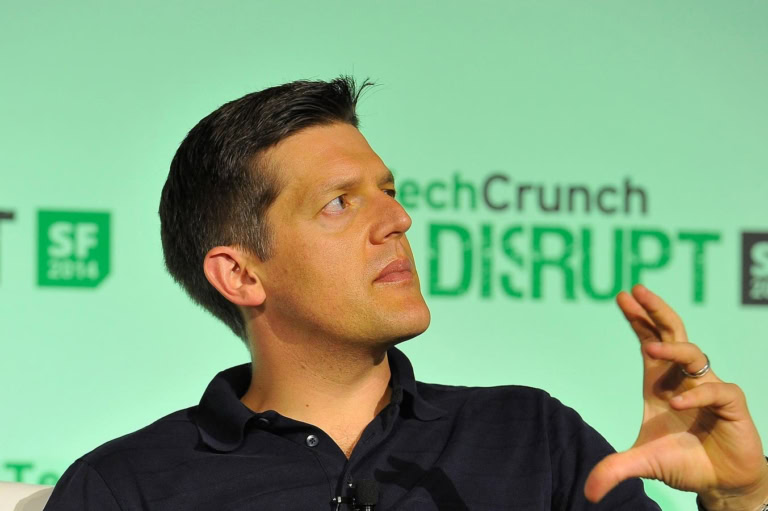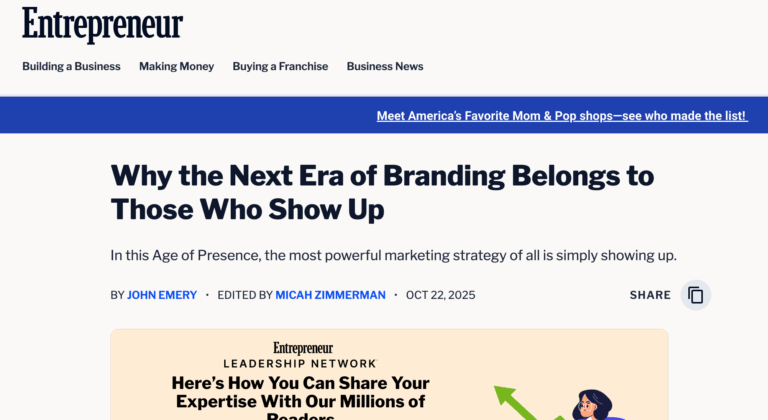With Athenahealth’s National Rollout of Ambient Notes And Zoom’s Partnership, Suki Is Proving Ambient AI Isn’t Optional – It’s Essential Infrastructure For Healthcare.
A Turning Point for Ambient AI
Venture capital is making an aggressive bet on ambient AI. It’s not just validation, it’s fuel. Backers like Venrock and Breyer Capital have bet on Suki’s ability to deliver not just innovation, but real operational leverage in clinical settings. Their investment underscores a belief that ambient AI isn’t just a tech layer — it’s a venture-scale opportunity to reshape healthcare delivery at its core.
AI in healthcare has long overpromised and underdelivered, until now. While most tools have added more clicks and dashboards, ambient AI is subtracting: it subtracts friction, burnout, and time spent charting instead of caring. The national rollout of Athenahealth Ambient Notes powered by Suki isn’t just a win for one startup, it’s a signal that invisible, assistive AI is finally hitting its stride.
And here’s the thing: it’s not just a workflow fix. It’s a redefinition of what tech in healthcare should be: unseen, unfelt, but utterly indispensable.
Why This Rollout Matters
We’ve seen the same cycle play out again and again: a shiny new tech tool enters healthcare, dazzles in demos, and falls flat in practice. But ambient AI breaks the pattern. Instead of interrupting clinical workflows, it blends into them. That’s what makes Athenahealth’s decision to integrate Suki into Ambient Notes so consequential. What began as a beta that logged over 60,000 clinical encounters is now live across the company’s vast network.
“This milestone with Athenahealth marks more than just scale. It signals real transformation for clinicians,” said Punit Soni, CEO and founder of Suki. “By embedding Suki deeply into the EHR, we’re delivering on the promise of ambient AI: less time on documentation, more time for care. This is what innovation should look like — seamless, intuitive, and focused entirely on the user experience.”
Real Results, Not Just AI Hype
Suki reports an adoption rate up to 2X that of competitors. The company says clinicians complete notes 72% faster, and physicians on the ground confirm the impact.
“I was used to spending 4 to 6 hours of my weekend catching up on documentation,” said Dr. Janelle Smith, a primary care physician in Springfield. “Now, using Ambient Notes, I haven’t been to the clinic on a single weekend in months, and I am close to 90-100 percent same-day note completion. It’s really been transformative to my practice, as well as for my patient relationships, a true win-win.”
“Across our network of ambulatory care providers, we are seeing rapid adoption of ambient listening technologies,” said Paul Brient, chief product officer at athenahealth. “It’s clear this technology is well matched to solve one of the industry’s biggest pain points—clinical documentation—and will only improve further through innovation and partnerships like this one with Suki.”
Ambient AI isn’t just saving time. It’s saving careers. Athenahealth’s own survey data found that nearly half of physicians pointed to documentation as the top area where AI could help. The product-market fit is undeniable.
“Across our network of ambulatory care providers, we are seeing rapid adoption of ambient listening technologies,” said Paul Brient, chief product officer at Athenahealth. “It’s clear this technology is well matched to solve one of the industry’s biggest pain points—clinical documentation—and will only improve further through innovation and partnerships like this one with Suki.”
Expanding the Ambient AI Ecosystem
Zoom is also betting on ambient AI. In late 2024, the company integrated Suki’s note-taking into its telehealth platform, part of its broader productivity push via Zoom AI Companion. For healthcare customers operating under Business Associate Agreements (BAAs), the integration provides compliant documentation with minimal effort. Suki isn’t just integrating, it’s becoming the backend.
“Suki continues to execute beautifully with a magical product for an ecosystem in desperate need of one,” said Bryan Roberts, partner at Venrock. “Its ambient digital assistant for doctors makes use of the greatest technology wave in decades — AI — in a population that has all too often been left behind with regards to technology innovation — healthcare.”
According to a report by Definitive Healthcare, Zoom holds a 36.16% market share in telehealth — making it the most widely used vendor in the sector. The platform serves over 140,000 healthcare customers worldwide, including eight of the ten largest U.S. health systems and nine of the top ten hospitals, according to U.S. News rankings. Its dominant footprint makes it a powerful partner for scaling ambient AI into virtual care delivery.
“Suki continues to execute beautifully with a magical product for an ecosystem in desperate need of one,” said Bryan Roberts, partner at Venrock. “Its ambient digital assistant for doctors makes use of the greatest technology wave in decades — AI — in a population that has all too often been left behind with regards to technology innovation — healthcare.”
Suki has also secured partnerships with major electronic health records systems, including Epic, Cerner, and Meditec.
Venture Capital’s Bet on Ambient AI Scribes
VCs are pouring capital into ambient AI scribes with over $5.6 billion invested in the sector in 2024 alone. Abridge, Ambience Healthcare, Nabla, and Suki have all landed serious backing. Abridge leads with $462 million; Suki has raised $168 million; Ambience and Nabla follow at $100 million and $43 million, respectively.
To VCs, this isn’t a product race — it’s an infrastructure bet. The winner in ambient AI will own the pipes through which modern medicine flows. Features come and go. Platforms endure. The company that captures the ambient layer captures the future of healthcare delivery.
When it comes to building ambient AI platforms for healthcare, funding isn’t just about speed — it’s about survival, scale, and long-term defensibility. Here’s why:
- High infrastructure costs: Building ambient AI platforms requires deep integration with EHRs, HIPAA compliance, and sophisticated clinical-grade natural language processing — all of which demand significant upfront investment.
- Long enterprise sales cycles: Healthcare adoption moves slowly. Ample funding gives startups the runway to endure lengthy pilot programs, navigate procurement hurdles, and build specialized enterprise sales teams.
- Data flywheel advantage: More capital accelerates deployment across health systems, which generates richer real-world data — feeding back into the AI and improving performance over time.
- Winner-take-most dynamics: The first platform to integrate deeply into clinical workflows gains stickiness. High switching costs mean early movers can dominate, making capital a key advantage in the race to embed.
- Talent acquisition: Top-tier AI engineers and healthcare operators are both scarce and expensive. Capital enables startups to compete for the talent needed to win at the intersection of both worlds.
In this category, funding isn’t just fuel — it’s a moat.
Suki’s Strategic Edge
Suki stands out in this crowded field because it’s fully AI-powered. No human scribes. No offshoring. No lag. That gives it a scalability and margin advantage that other models can’t easily match. Moreover, the company plans to deepen its current product offerings while developing new ones, including AI tools for healthcare staffing.
Founded in 2017 by former Google and Flipkart exec Punit Soni, Suki has secured capital from Venrock, Breyer Capital, Zoom Ventures, and March Capital. But it’s not just capital, it’s conviction.
“With a large language model, you can get to a demo. But it takes years of work to make a great product that works at scale, in all languages, across large healthcare settings,” Soni said.
Suki stands apart by combining a fully automated clinical AI assistant with a white-labeled platform that powers other telehealth and EHR companies, not just its own product. While competitors like Abridge focus on large health systems and Ambience emphasizes platform breadth, Suki targets agile healthcare players with a lightweight, extensible product that combines ambient documentation with interactive voice commands thereby positioning itself as both a clinical assistant and an infrastructure layer for the future of healthcare interfaces.
Additionally, Suki stands out with its relationships. Relationships are critical in healthcare AI since success relies on strong networks, not just for influence, but for performance. Partnerships give companies access to richer data, enabling them to train smarter models. More collaborators mean more feedback to improve accuracy, and deeper integration with EHR systems makes it easier to scale across clinical environments. Suki has established a robust network of partnerships across the healthcare and technology sectors, enhancing its AI-powered clinical assistant offerings. Key collaborations include:
- Electronic Health Record (EHR) Integrations: In addition to Athenahealth, Suki integrates with major EHRs such as Epic, Oracle Cerner, and MEDITECH facilitating seamless documentation workflows for clinicians.
- Health Systems: The company has expanded its reach by partnering with over 300 health systems, including a significant collaboration with MedStar Health, a $8.3 billion health system with more than 300 care locations.
- Technology Platforms: Suki has partnered with Zoom to integrate its AI-driven clinical notes into Zoom’s Workplace for Clinicians solution, aiming to improve user experience and patient care.
- Clinical Decision Support: A collaboration with Wolters Kluwer allows Suki to integrate UpToDate’s trusted physician-authored content into its AI assistant, providing clinicians with reliable clinical information at the point of care.
- Telehealth Platforms: Suki has partnered with Amwell to bring its AI-powered assistant to Amwell’s Converge telehealth platform, enhancing digital care delivery for providers and patients.
- Technology Platforms: Suki has established a strategic partnership with Google Cloud to enhance its AI-powered clinical assistant capabilities.
These partnerships underscore Suki’s commitment to reducing administrative burdens for clinicians and improving patient care through advanced AI solutions.
A $600 Billion Opportunity
According to Precedence Research, the global AI in healthcare market is projected to hit $613.81 billion by 2034. Ambient AI is one of its fastest-growing segments. The prize is massive, and Suki is positioning itself as the infrastructure layer for this next generation.
As the market expands, the question won’t be “does this tech work?” It will be “Who do we trust to build it right?”
The Path Forward in Healthcare AI
Ambient AI isn’t a niche feature. It’s becoming the connective tissue of modern healthcare. For VCs, it’s a rare convergence of scale, clinical demand, and stickiness. For doctors, it’s relief.
Ambient AI isn’t a niche feature. It’s becoming the connective tissue of modern healthcare. For VCs, it’s a rare convergence of scale, clinical demand, and stickiness. For doctors, it’s relief.
This moment isn’t just a product launch. It’s a shift in the power dynamic between AI and healthcare. And if Suki continues to execute, it could be the company that defines how AI is integrated into the exam room – not as a screen, but as a silent, trusted partner.
The real question isn’t if ambient AI will win. It’s who will own it.















